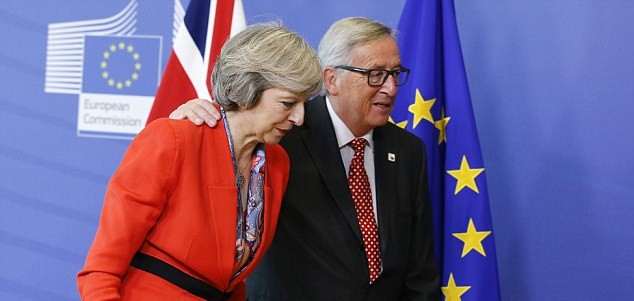E.U. leaders approve Brexit plan
November 27, 2018 | Expert Insights

The agreement — “historic,” according to German Chancellor Angela Merkel — will cut Britain out of the European Union, marking the first time a nation has ever sought to depart the bloc.
Background
On June 23rd, 2016, Britain narrowly voted to leave the European Union, stunning Europe and the world in general. The EU employs a set of policies for its 28-member states that aim to ensure the free movement of people, goods and trade among other services. Britain is deeply intertwined with the workings of the EU especially with regard to trade.
Over the past year, leaders of member nations have expressed their dismay over Britain leaving the body. German Chancellor Angela Merkel and Dutch Prime Minister Mark Rutte are among those who have been vocal about their apprehension regarding the events that are unfolding.
In December 2017, UK Prime Minister Theresa May struck a last-minute deal with the EU regarding key issues. According to this deal, there will be no "hard border" in Ireland. The rights of EU citizens in the UK and the rights of UK citizens living elsewhere in the EU would also be protected.
The UK is officially set to leave the EU in March 2019.
Analysis
European leaders signed off on their split with Britain, approving a deal that would set the United Kingdom on a new road, independent from the European Union after more than four decades of membership in the political and economic powerhouse.
However, the deal must still weather Britain’s political storms ahead of the official March 29 exit date, with the key test next month when Britain’s Parliament puts it to a vote amid strong opposition. No matter the uncertainty in Britain, Sunday’s meeting was a momentous occasion in the country’s 45-year-long membership in the European club and its tortuous two-year effort to depart it.
The agreement will almost certainly come with steep costs for both sides, leaving leaders in the extraordinary position of negotiating a split that almost all believe will harm their citizens. Some E.U. leaders said they felt Sunday’s deal was a tragedy. The accord, approved unanimously Sunday by the remaining 27 EU leaders, would leave Britain in legal limbo — obligated to follow most E.U. rules but no longer a member — until the end of 2020, as leaders haggle over the relationship to come. The assent came after less than an hour of discussion.
“My feelings are very divided,” Merkel said after the meeting, a rare and unusual gathering of European leaders on a chilly Sunday morning in Brussels. “I feel very sad, but at the same time I feel a sense of relief.” Asked if she shared the unhappiness, British Prime Minister Theresa May said, “No, but I recognize that others do.” May said the British Parliament will now face “one of most significant votes Parliament has had in many years,” and she would campaign for it with all her heart.
“This is the deal on the table,” she said. “It is best possible deal. It is the only deal.”
British and EU negotiators will still have to work out the terms of their future relationship, and although a 36-page declaration, that was also approved on Sunday, has set out some of the guidelines, much remained unresolved, including Britain’s freedom to control large parts of its own economy.
Counterpoint
As many as 90 lawmakers of May’s own Conservative Party have said they plan to vote against it, alongside members of the opposition Labour Party. The plan seeks to avoid a “hard” border between the Republic of Ireland, which is remaining in the European Union, and Northern Ireland, which will depart. It also seeks to prevent an internal split between Northern Ireland and the rest of the United Kingdom. To do so, the two sides agreed that if they fail to come up with a better plan before the end of Britain’s transition period, London will remain locked inside the European customs union, obligated to respect most E.U. regulations on goods that would pass between the two sides, including tariffs with the rest of the world.
Assessment
Our assessment is that PM May’s proposal will face stiff opposition in the UK Parliament. We believe that the EU is getting the better deal in the proposed draft agreement and is therefore not opposing it. We also feel that British politics will have to endure a turbulent period until the exit is finalised.








Comments